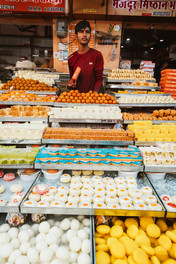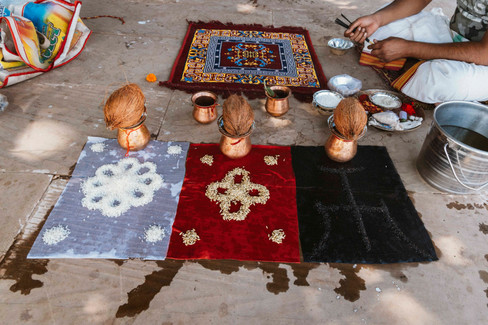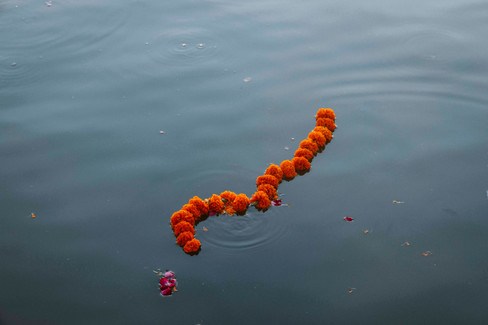Diwali: The Festival of Lights that Illuminates the Soul of India
- Dani Triguero
- Mar 23, 2025
- 2 min read
Diwali, known as the "festival of lights," is one of India's most significant and joyful celebrations. This festival, which marks the victory of light over darkness and good over evil, has deep spiritual roots and is celebrated by millions of people in India and in Hindu communities around the world. Diwali is celebrated for five days, but its preparation and significance extend for weeks, filling homes, temples, and streets with lights, decorations, and a spirit of renewal.
The Origin and Meaning of Diwa

The origin of Diwali lies in the ancient legends of the Ramayana, the famous Hindu epic poem. According to tradition, Diwali marks the return of Prince Rama to his home in Ayodhya after fourteen years of exile and the defeat of the demon king Ravana. Upon his return, the people of Ayodhya lit the path with oil lamps to welcome their prince, symbolizing the triumph of justice. Diwali is also associated with the goddess Lakshmi, the deity of prosperity and fortune. During the festival, many Hindus pray to Lakshmi to bring abundance and good fortune to their homes.
Rituals and Celebrations

Preparations for Diwali begin days before with the cleaning and decoration of homes and businesses, symbolizing a new beginning and the arrival of good things. The central day of Diwali, the most anticipated, is illuminated with diyas (oil lamps) and lights adorning windows, terraces, and temples. Families hold prayers and ceremonies in honor of Lakshmi and Ganesha, gods of prosperity and the removal of obstacles.
At night, the sky fills with fireworks and firecrackers, a tradition that symbolizes the warding off of evil spirits. People exchange sweets and gifts, especially boxes of mithai, traditional Indian sweets made with milk, sugar, and nuts. This gift exchange reflects the spirit of generosity and togetherness, one of the most powerful messages of Diwali.
Diwali and its Meaning Today
Over the years, Diwali has evolved, and while the essence of the holiday remains, the celebration adapts to modern lives. Today, people light electric lights alongside traditional diyas, and many seek to reduce fireworks for the sake of the environment. However, the purpose remains the same: to honor each person's inner light and promote harmony among family, friends, and communities.
Diwali, a Light that Crosses Borders
The celebration of Diwali transcends India and resonates with Hindu communities around the world. Every year, major cities such as London, Singapore, and New York host festivals and public events to celebrate Diwali. This holiday has come to symbolize not only Hindu identity, but also the joy of sharing and the importance of renewal, connecting people of diverse cultures in a universal message of peace and hope.
Diwali is more than a festival of lights: it's a reminder of the values of faith, kindness, and self-improvement. With every lamp lit, every prayer said, and every smile shared, Diwali lights the way to a brighter future, uniting hearts around the world in the light of hope and celebration.
.png)



















































































Comments